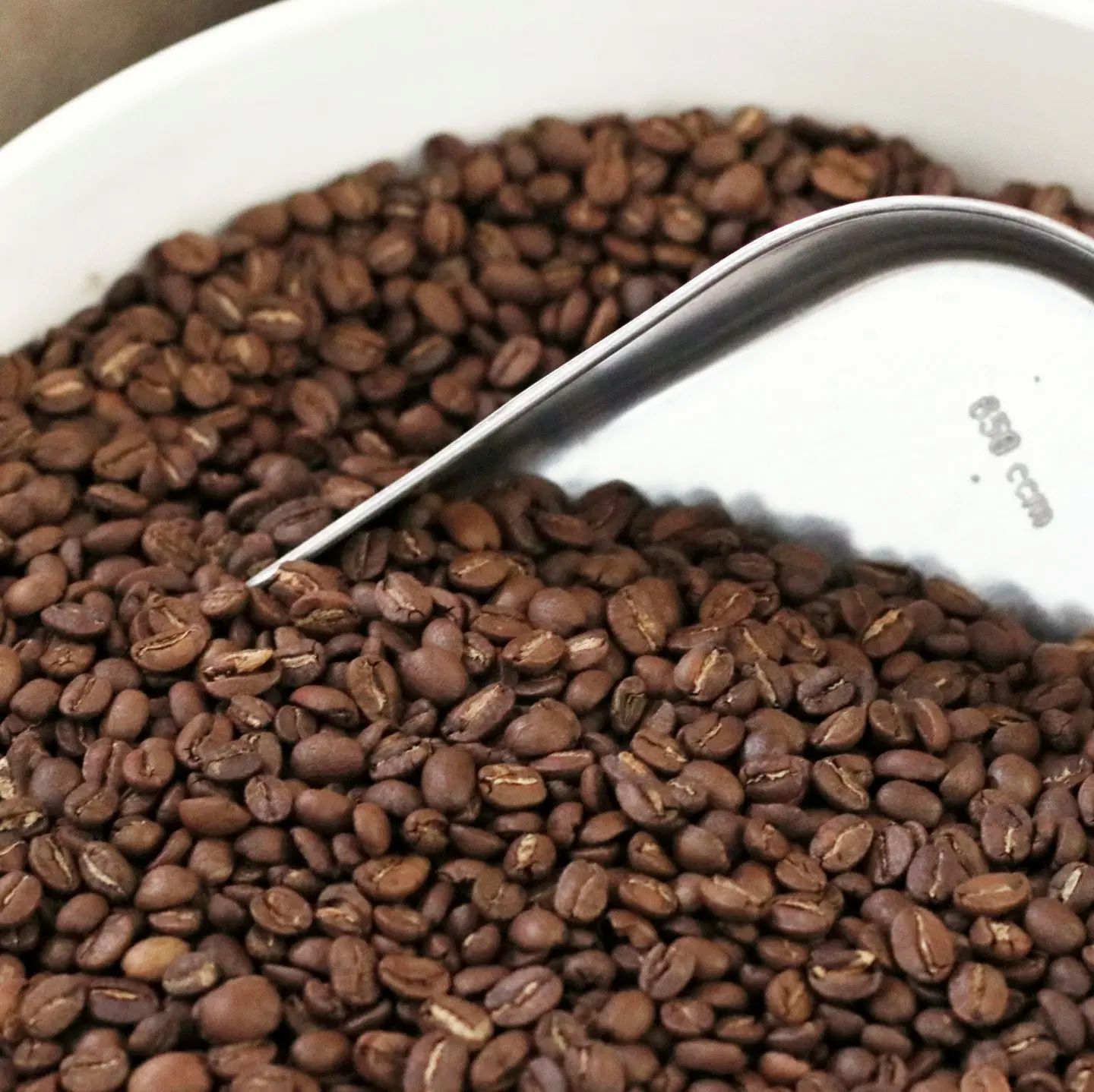

Articles
How To Store Fresh Roasted Coffee Beans
Modified: January 6, 2024
Learn the best methods for storing fresh roasted coffee beans to maintain their flavor and quality with our informative articles.
(Many of the links in this article redirect to a specific reviewed product. Your purchase of these products through affiliate links helps to generate commission for Storables.com, at no extra cost. Learn more)
Introduction
When it comes to achieving the perfect cup of coffee, one crucial factor that often gets overlooked is the storage of fresh roasted coffee beans. Proper storage is essential for preserving the freshness, flavor, and aroma of coffee beans, ensuring that every brew is a delightful experience. Whether you’re a coffee aficionado or simply enjoy a good cup of Joe, understanding the importance of storing coffee beans correctly can make all the difference.
Storing coffee beans properly helps to slow down the deterioration process, keeping them at their peak flavor for as long as possible. Exposing coffee beans to air, light, moisture, and heat can lead to their degradation, resulting in a subpar cup of coffee. By using the right storage containers and following appropriate techniques, you can extend the shelf life of your coffee beans and maintain their freshness for optimal brewing.
In this article, we will explore the various factors that affect coffee bean freshness and guide you through the best practices for storing fresh roasted coffee beans. From choosing the ideal containers to discussing the pros and cons of different storage methods, we will equip you with the knowledge to preserve the quality of your coffee beans.
Key Takeaways:
- Proper storage of fresh roasted coffee beans is essential to preserve flavor, aroma, and quality. Airtight containers, avoiding heat and light, and consuming within the freshness window are key to enjoying the best-tasting coffee.
- Choosing the right storage container, avoiding frequent opening and closing, and experimenting with different beans and brewing methods can enhance the quality and freshness of coffee beans. Enjoy the rich flavors and enticing aromas with every cup.
Read more: How To Store Roasted Coffee Beans
Why is Proper Coffee Bean Storage Important?
Proper coffee bean storage is of utmost importance because it directly impacts the quality of your coffee. Coffee beans are sensitive to their environment and can easily deteriorate if not stored correctly. Here are a few reasons why proper storage is crucial:
- Prolong Freshness: Coffee beans contain volatile compounds that contribute to their flavor and aroma. When exposed to air, these compounds can oxidize and degrade, resulting in a loss of freshness. Proper storage helps to preserve these volatile compounds, ensuring that your coffee beans stay fresh for a longer period.
- Maintain Flavor and Aroma: The delicate flavors and enticing aromas of coffee beans are what make each cup so enjoyable. By storing your coffee beans properly, you can retain these characteristics for a more flavorful coffee experience. Improper storage, on the other hand, can lead to a flat and stale taste.
- Prevent Moisture Absorption: Coffee beans are hygroscopic, meaning they readily absorb moisture from the surrounding environment. Moisture can cause the beans to become stale and can even lead to the growth of molds or fungi. With proper storage, you can prevent moisture from reaching your coffee beans and ensure their long-term freshness.
- Avoid Flavor Contamination: Coffee beans are also highly susceptible to absorbing odors from their surroundings. If not stored properly, they can absorb unwanted flavors and aromas from nearby foods or spices. This can result in an off-flavored cup of coffee that lacks the true essence of the beans.
By taking the time to store your coffee beans correctly, you can preserve their quality, flavor, and aroma, allowing you to enjoy a truly exceptional cup of coffee every time you brew.
Factors Affecting Coffee Bean Freshness
Several factors can affect the freshness and quality of coffee beans. Understanding these factors is essential for proper coffee bean storage. Here are the key factors to consider:
- Air: Exposure to air is one of the primary culprits of coffee bean deterioration. Oxygen can cause the beans to oxidize, leading to a loss of flavor and aroma. To preserve freshness, it’s crucial to store coffee beans in an airtight container that minimizes air contact.
- Light: Light can also have a negative impact on coffee beans. UV rays from sunlight can degrade the beans and accelerate flavor loss. It’s best to store coffee beans in a dark and opaque container to protect them from light exposure.
- Moisture: Excess moisture can be detrimental to coffee beans. It can lead to the growth of mold or spoilage, resulting in a sour and unpleasant taste. Coffee beans should be stored in a dry environment to prevent moisture absorption.
- Heat: High temperatures can accelerate the aging process of coffee beans, causing them to lose their desirable flavors. It’s important to store coffee beans away from heat sources such as stovetops, ovens, or direct sunlight to maintain their freshness.
- Time: Even under ideal storage conditions, coffee beans will gradually lose their freshness over time. The flavor and aroma of coffee beans are most vibrant within a few weeks of roasting. It’s recommended to consume the beans within this timeframe for the best-tasting coffee.
By taking these factors into account and implementing proper storage techniques, you can ensure that your coffee beans stay fresh and retain their optimum flavors for as long as possible.
Best Containers for Storing Coffee Beans
Choosing the right container for storing your coffee beans is vital for maintaining their freshness and quality over time. Here are some of the best containers to consider:
- Airtight Canisters: Airtight canisters with a strong seal are highly effective in keeping air out and preserving the freshness of coffee beans. Look for canisters made of materials like stainless steel or opaque ceramic, as they provide excellent protection against light and moisture.
- Mason Jars: Mason jars with airtight lids can also work well for storing coffee beans. These glass jars are non-reactive and do not absorb odors, ensuring that the coffee beans’ flavors remain intact. However, it’s important to store them in a dark place to protect them from light exposure.
- Vacuum-Sealed Bags: Vacuum-sealed bags are a popular choice for commercial coffee producers as they effectively remove air and create a tight seal. These bags are made of multi-layered materials that prevent oxygen, light, and moisture from reaching the coffee beans. They are particularly useful when buying coffee in bulk.
- Coffee Bean Storage Canisters: Specialized coffee bean storage canisters are designed specifically for preserving the freshness of coffee beans. These containers often feature one-way degassing valves that release carbon dioxide while preventing oxygen from entering. This helps to maintain the coffee beans’ freshness without requiring daily degassing.
- Foil-lined Bags: Foil-lined bags are commonly used in the coffee industry due to their excellent moisture and oxygen barrier properties. These bags are often resealable, allowing you to open and seal them multiple times while still maintaining freshness. However, once opened, it’s crucial to consume the coffee beans within a few weeks for optimal flavor.
Remember that regardless of the container you choose, it’s important to keep it in a cool and dry place, away from direct sunlight and heat sources. Additionally, always ensure that the container is clean and free from any residual odors that could potentially affect the flavor of your coffee beans.
By utilizing the right storage container, you can help prolong the freshness and quality of your coffee beans, contributing to a more enjoyable coffee experience.
How to Store Coffee Beans in an Airtight Container
Storing coffee beans in an airtight container is a simple yet effective way to preserve their freshness and flavor. Here’s a step-by-step guide on how to do it:
- Select the Right Container: Choose a container that is specifically designed for storing coffee beans. Look for one that is airtight and made of materials like stainless steel, ceramic, or opaque glass. Avoid containers that allow light to penetrate, as it can degrade the quality of the beans.
- Ensure Cleanliness: Before storing your coffee beans, make sure the container is clean and free from any residual odors. Wash the container with mild soap and water, and thoroughly dry it before use.
- Grind Fresh, Store Whole: For the best flavor and freshness, it’s recommended to grind your coffee beans just before brewing. If you prefer to store pre-ground coffee, ensure that it is in an airtight container as well to prevent oxidation.
- Transfer the Coffee Beans: Pour the desired amount of coffee beans into the airtight container. Fill it to a level where there is minimal empty space, as excessive air can lead to faster deterioration.
- Seal the Container: Ensure that the container is tightly sealed to prevent air from entering. Check for any gaps or loose seals and make adjustments as needed.
- Store in a Cool, Dark Place: Find a cool and dark location to store the airtight container. Avoid placing it near heat sources or in direct sunlight, as exposure to high temperatures can negatively impact the quality of the beans.
- Avoid Freezing and Refrigeration: While it may seem tempting to store coffee beans in the freezer or refrigerator, it’s generally not recommended. The moisture from these environments can affect the coffee beans’ flavor and aroma. Opt for a cool pantry or cupboard instead.
- Keep Coffee Beans Whole: It’s best to store coffee beans in their whole form as they retain freshness longer than pre-ground beans. Grind the beans just before brewing to ensure optimal flavor extraction.
By following these steps, you can ensure that your coffee beans remain fresh and full of flavor for a longer period. Always remember to seal the airtight container properly after each use to maintain the quality of your coffee beans.
Store fresh roasted coffee beans in an airtight container at room temperature, away from direct sunlight and moisture. Avoid storing in the fridge or freezer as it can affect the flavor.
Read more: How To Store Fresh Coffee Beans
How to Store Coffee Beans in the Freezer
While it is generally recommended to store coffee beans at room temperature, there may be situations where freezing the beans is necessary. Freezing can help extend the shelf life of coffee beans, particularly if you buy them in bulk or want to keep them for an extended period. Here’s a guide on how to properly store coffee beans in the freezer:
- Divide into Small Portions: If you have a large quantity of coffee beans, divide them into smaller portions. This will allow you to take out just the amount you need without repeatedly exposing the rest of the beans to temperature changes.
- Use Airtight Freezer Bags or Containers: Place the coffee beans in airtight freezer bags or containers. It’s important to minimize air exposure to prevent freezer burn and maintain the beans’ flavor and freshness. Squeeze out any excess air from the bags before sealing them tightly.
- Label and Date: Label each bag or container with the type of coffee beans and the date of freezing. This will help you keep track of how long the beans have been stored in the freezer.
- Place in the Back of the Freezer: Put the coffee bean bags or containers in the back of the freezer where the temperature remains more consistent. Avoid placing them near the freezer door, as temperature fluctuations can affect the quality of the beans.
- Avoid Frequent Thawing and Refreezing: Try to minimize the number of times you take out the coffee beans from the freezer. Frequent thawing and refreezing can cause condensation to form, which can negatively impact the beans’ taste and aroma.
- Allow Time for Thawing: When you’re ready to use the coffee beans, remove the desired amount from the freezer and let them thaw at room temperature. It’s essential to let the beans come to room temperature before grinding or brewing to ensure optimal flavor extraction.
- Use the Frozen Beans Within a Reasonable Timeframe: While frozen coffee beans can retain their freshness for a longer period, it’s still advisable to use them within three to four months. The flavor and aroma may gradually degrade over time, so it’s best to consume the beans while they are still at their peak.
Remember that freezing coffee beans should be done as a last resort, primarily for long-term storage. It’s always recommended to use freshly roasted coffee beans for the best flavor and aroma. If you do choose to freeze your coffee beans, make sure to follow these guidelines to ensure that you preserve their quality as much as possible.
How to Store Coffee Beans in a Pantry or Cupboard
Storing coffee beans in a pantry or cupboard is a popular and convenient method that maintains their freshness and flavor. Follow these steps to store your coffee beans effectively:
- Select the Right Container: Choose an airtight container made of materials like stainless steel, ceramic, or opaque glass. The container should have a tight-fitting lid to prevent air, light, and moisture from reaching the coffee beans.
- Ensure Cleanliness: Before storing your coffee beans, ensure that the container is clean and free from any residual odors. Wash the container with mild soap and water, then thoroughly dry it before use.
- Grind Fresh, Store Whole: Whenever possible, grind your coffee beans just before brewing to maximize freshness. If you prefer to store pre-ground coffee, make sure to transfer it to an airtight container to maintain its flavor and aroma.
- Transfer the Coffee Beans: Pour the desired amount of coffee beans into the airtight container. Fill the container to its maximum capacity to minimize the presence of air, as excess air can lead to faster degradation.
- Seal the Container: Ensure that the container is tightly sealed to prevent air from entering. Check for any gaps or loose seals and make the necessary adjustments.
- Choose a Cool and Dark Location: Find a cool and dark spot in your pantry or cupboard to store the coffee bean container. Avoid areas that are exposed to direct sunlight or heat sources, as these can degrade the quality of the beans.
- Stay Organized: If you have multiple types of coffee beans or flavors, consider labeling the containers to easily identify and access the specific ones you desire.
- Keep Away From Strong Odors: Coffee beans can absorb odors from their surroundings, so avoid storing them near strong-smelling items like spices or cleaning products. This will help preserve the pure and distinct flavor of the coffee beans.
- Consume Within a Few Weeks: While properly stored coffee beans can retain their freshness for a few months, it’s best to consume them within a few weeks of roasting for the best flavor and aroma.
By following these steps and storing your coffee beans in a pantry or cupboard, you can enjoy fresh and flavorful coffee for an extended period. Remember to keep the container tightly sealed and choose an appropriate location to maintain the beans’ quality.
How Long Can Roasted Coffee Beans Be Stored?
The shelf life of roasted coffee beans can vary depending on several factors, including the quality of the beans, the roasting process, and how they are stored. While coffee beans are typically at their best within a couple of weeks of roasting, they can still be enjoyable for an extended period if stored properly.
It’s important to note that coffee beans, like any agricultural product, will gradually lose their freshness over time. However, by following proper storage guidelines, you can extend the shelf life and enjoy a flavorful cup of coffee for several weeks to a few months. Here are some general guidelines:
- Freshness Window: Coffee beans are often considered to be at their peak flavor within two to four weeks after roasting. During this period, the beans retain their optimal flavor, aroma, and acidity.
- One-Way Degassing Valves: Coffee beans release carbon dioxide gas after roasting due to the degassing process. One-way degassing valves, often found on specialized coffee bean bags or containers, allow this gas to escape while preventing oxygen from entering. This can help to maintain the freshness of the beans for a longer time.
- Storage Conditions: Proper storage conditions play a significant role in preserving the freshness of coffee beans. Storing them in an airtight container, away from air, light, moisture, and heat, will help maintain their quality. It’s best to store coffee beans in a cool and dark place such as a pantry or cupboard.
- Whole Beans vs. Ground Coffee: Whole coffee beans generally have a longer shelf life compared to pre-ground coffee. Grinding coffee beans exposes more surface area, which accelerates the oxidation process and leads to faster flavor degradation. To maximize freshness, it’s recommended to grind coffee beans just before brewing.
- Individual Preferences: While some people are highly sensitive to changes in flavor and aroma, others may not notice significant differences as coffee beans age. It ultimately comes down to individual preferences and taste sensitivity in determining how long roasted coffee beans can be stored while still being enjoyable.
It’s worth experimenting with different storage methods and durations to find the ideal balance between maintaining freshness and finding your preferred taste. Remember, the best way to experience the full potential of coffee beans is to enjoy them as fresh as possible, ideally within a few weeks of roasting.
Tips for Maintaining Coffee Bean Freshness
To ensure that your coffee beans remain fresh and flavorful for as long as possible, here are some tips to help you maintain their freshness:
- Buy Freshly Roasted Beans: Whenever possible, purchase coffee beans that have been recently roasted. This ensures that you start with the freshest and most flavorful beans.
- Store in an Airtight Container: Use an airtight container made of materials like stainless steel, ceramic, or opaque glass to keep air out and preserve the beans’ freshness. Avoid containers that allow light to penetrate, as it can degrade the quality of the beans.
- Avoid Frequent Opening and Closing: Every time you open the container, air is introduced to the beans, which can accelerate the oxidation process. Try to scoop out the desired amount of coffee beans without unnecessary opening and closing of the container.
- Keep Away from Heat and Light: Store the coffee beans in a cool and dark place, away from direct sunlight, heat sources, or excessive moisture. Avoid storing them near the stove, oven, or on countertops exposed to sunlight.
- Avoid Freezing, Unless Necessary: Freezing coffee beans should be done as a last resort for long-term storage. If you choose to freeze the beans, make sure to use an airtight freezer bag or container and ensure they’re properly thawed before brewing.
- Grind Just Before Brewing: For the freshest and most flavorful cup of coffee, grind the beans just before brewing. This helps to preserve the natural flavors and aromas of the beans.
- Avoid Strong Odors: Coffee beans are absorbent and can take on surrounding odors. Keep them away from strong-smelling items such as spices, cleaning agents, or strong-smelling foods to maintain their pure flavor.
- Use within the Freshness Window: Although coffee beans can be stored for longer periods, they are typically at their peak flavor within two to four weeks after roasting. Aim to consume the beans within this freshness window for the best taste.
- Experiment and Enjoy: Coffee preferences vary from person to person. Don’t be afraid to experiment with different beans, brewing methods, and storage techniques to find what works best for you and your taste preferences.
By following these tips, you can prolong the freshness and enhance the quality of your coffee beans, ensuring that every cup of coffee is a delicious experience.
Read more: How To Store Coffee Beans For Freshness
Conclusion
Proper storage of fresh roasted coffee beans is crucial for preserving their flavor, aroma, and overall quality. By understanding the factors that affect coffee bean freshness and following the appropriate storage techniques, you can ensure that your coffee beans stay fresh and flavorful for as long as possible.
Airtight containers made of materials like stainless steel, ceramic, or opaque glass are ideal for storing coffee beans. These containers help to protect the beans from exposure to air, light, moisture, and heat, which can all contribute to flavor degradation. In addition, storing coffee beans in a cool and dark place, such as a pantry or cupboard, will further help to maintain their freshness.
While freezing coffee beans is an option for long-term storage, it should be done sparingly and as a last resort. Freezing can affect the flavor and aroma of coffee beans if not done correctly. It’s recommended to grind coffee beans just before brewing and to consume them within the freshness window, typically within two to four weeks after roasting.
Remember, the key to enjoying the best-tasting coffee lies in using fresh roasted beans and storing them properly. By implementing the tips and techniques discussed in this article, you can elevate your coffee experience and savor the rich flavors and enticing aromas with every cup.
So, whether you’re a coffee enthusiast or simply enjoy a good cup of coffee, take the time to store your coffee beans correctly and explore the world of exceptional coffee flavors that await you.
Frequently Asked Questions about How To Store Fresh Roasted Coffee Beans
Was this page helpful?
At Storables.com, we guarantee accurate and reliable information. Our content, validated by Expert Board Contributors, is crafted following stringent Editorial Policies. We're committed to providing you with well-researched, expert-backed insights for all your informational needs.
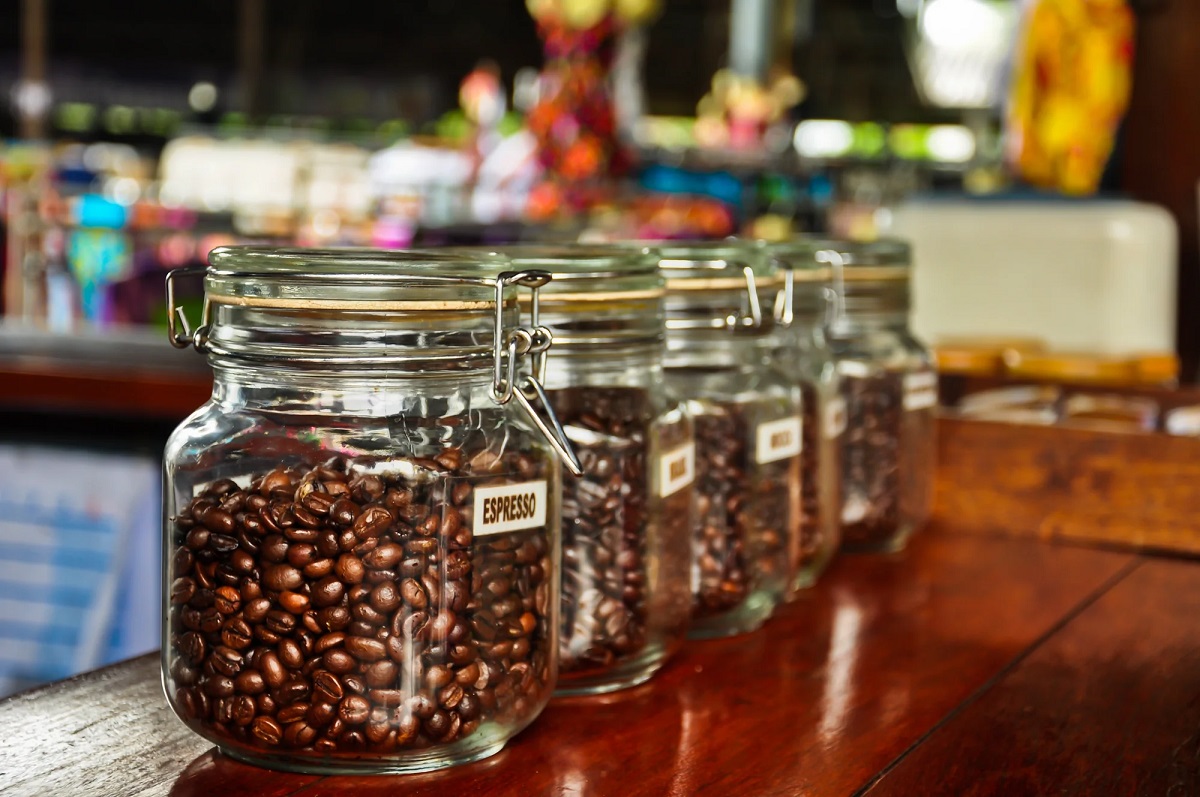


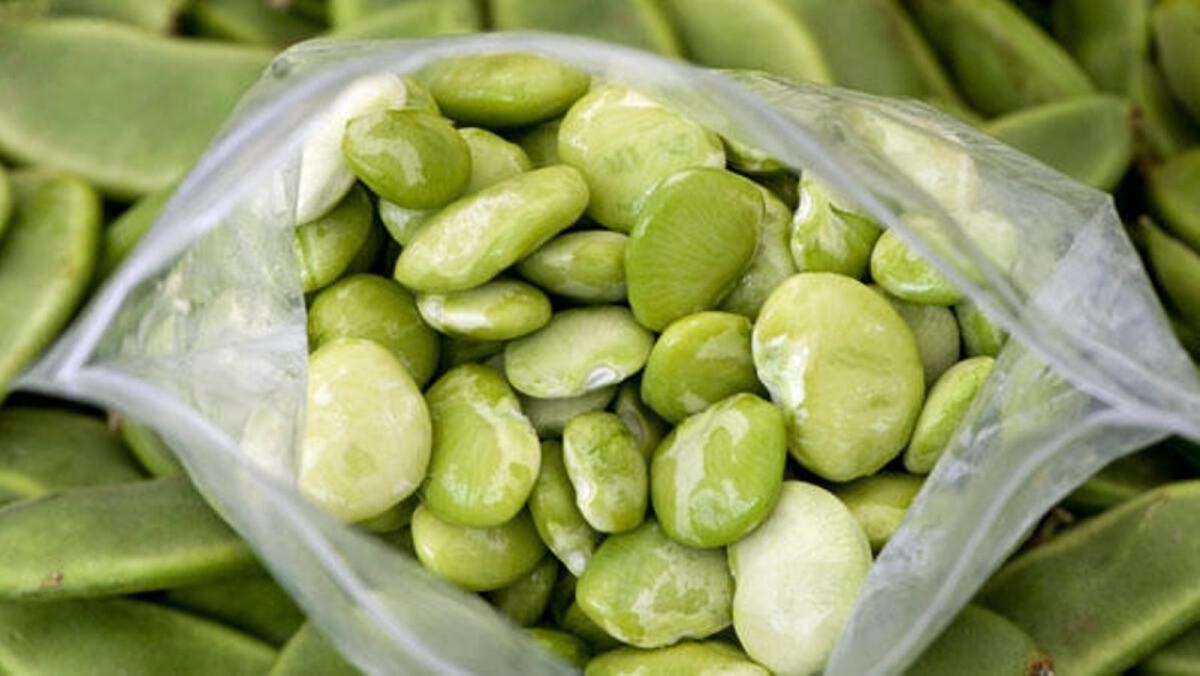
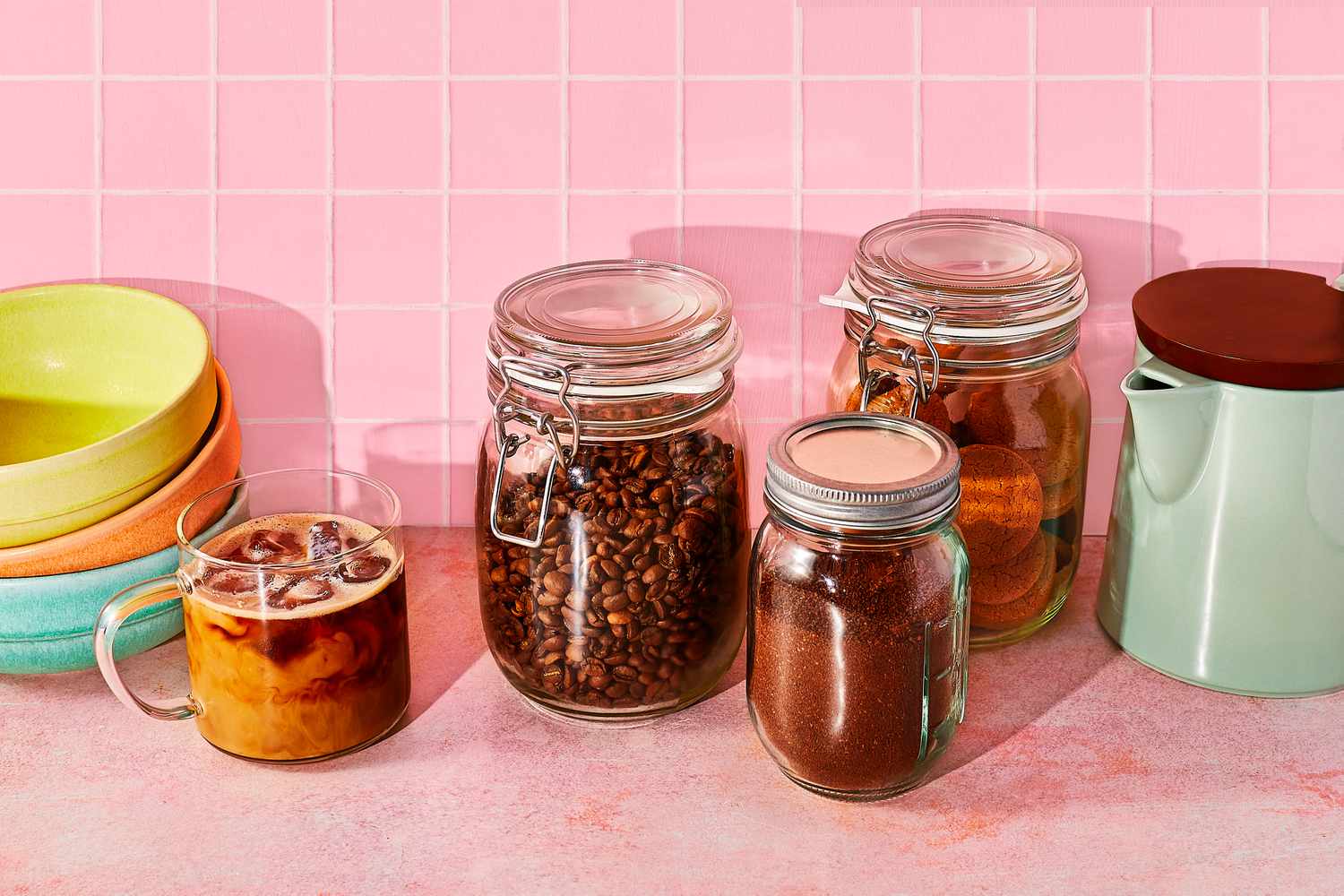
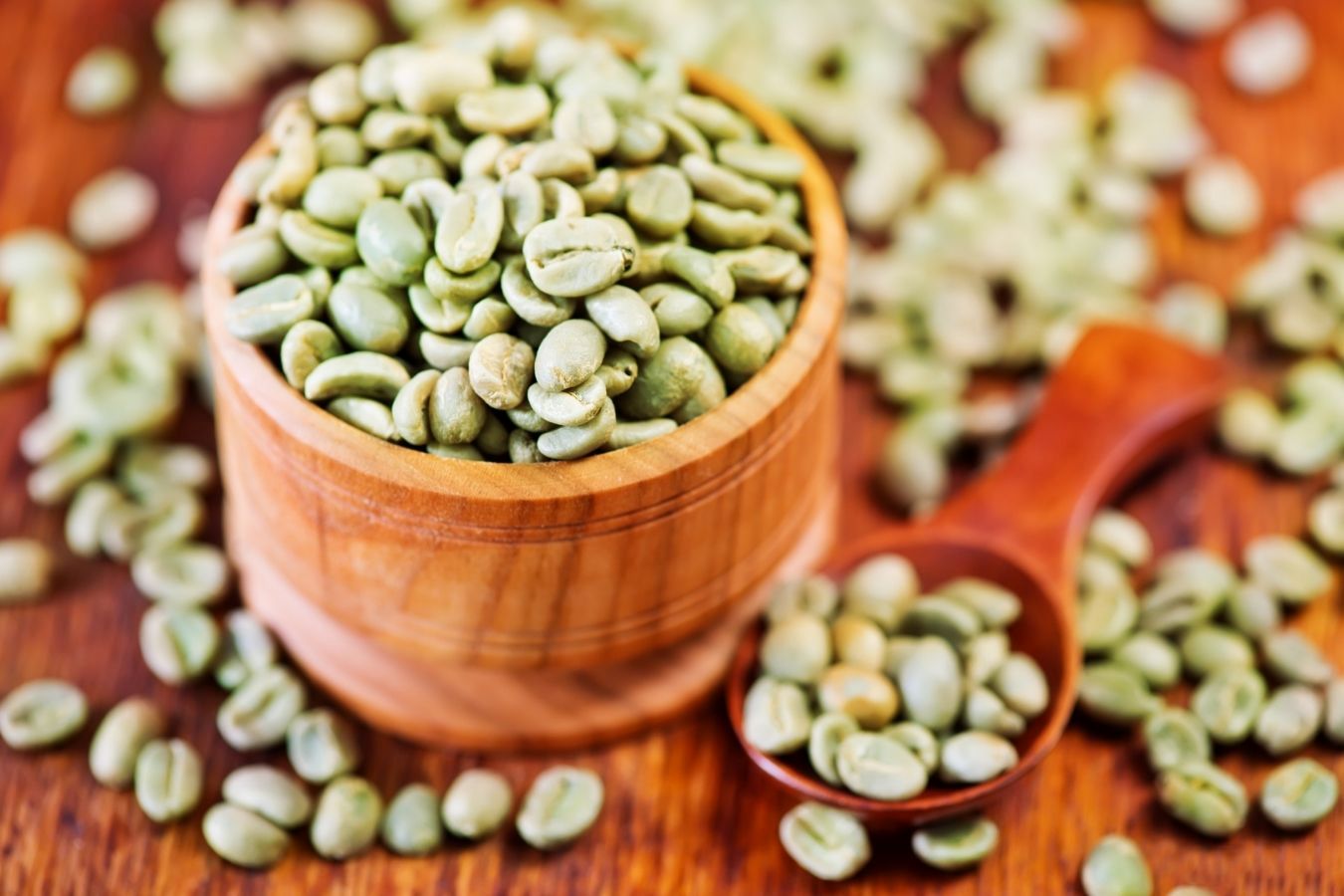

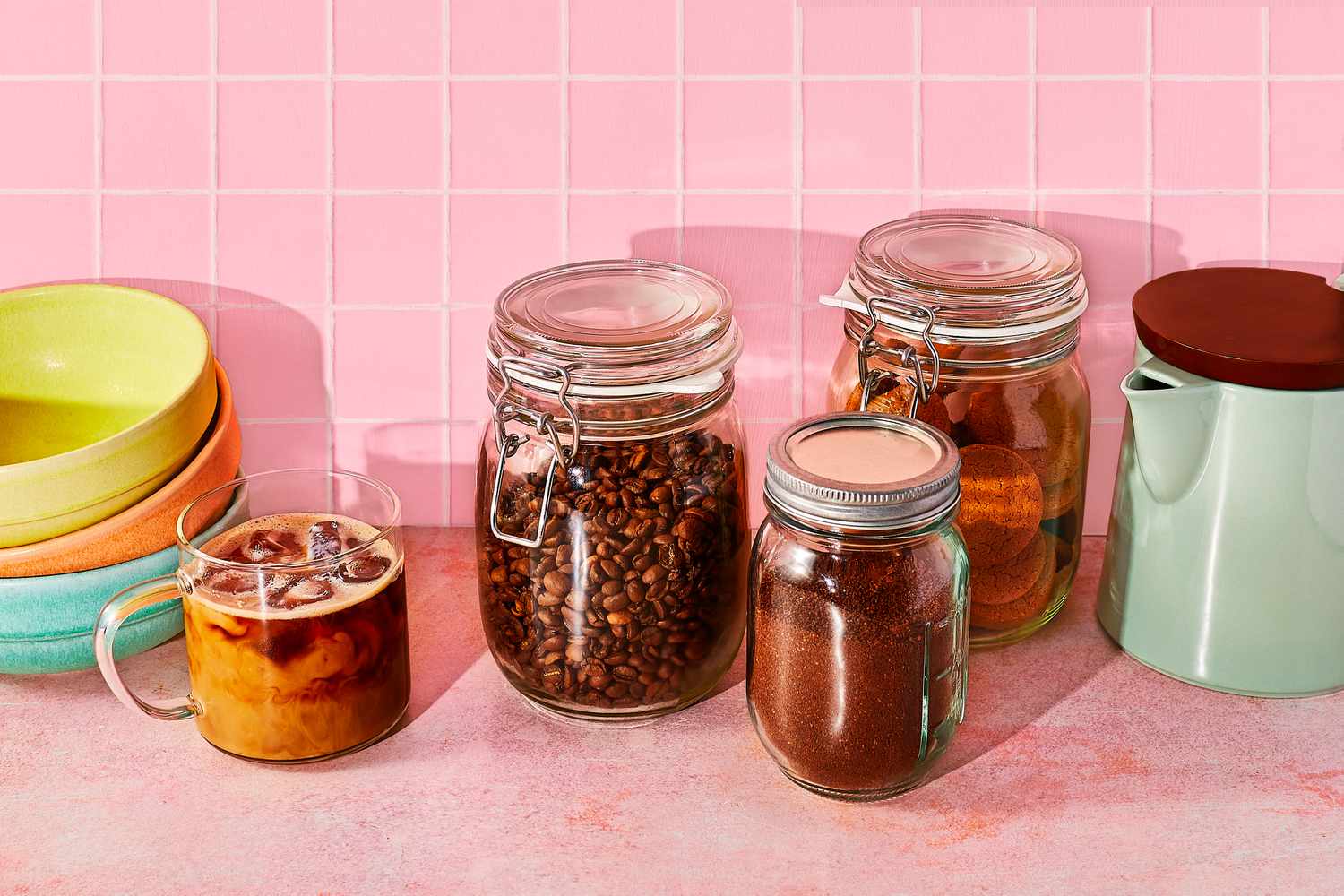
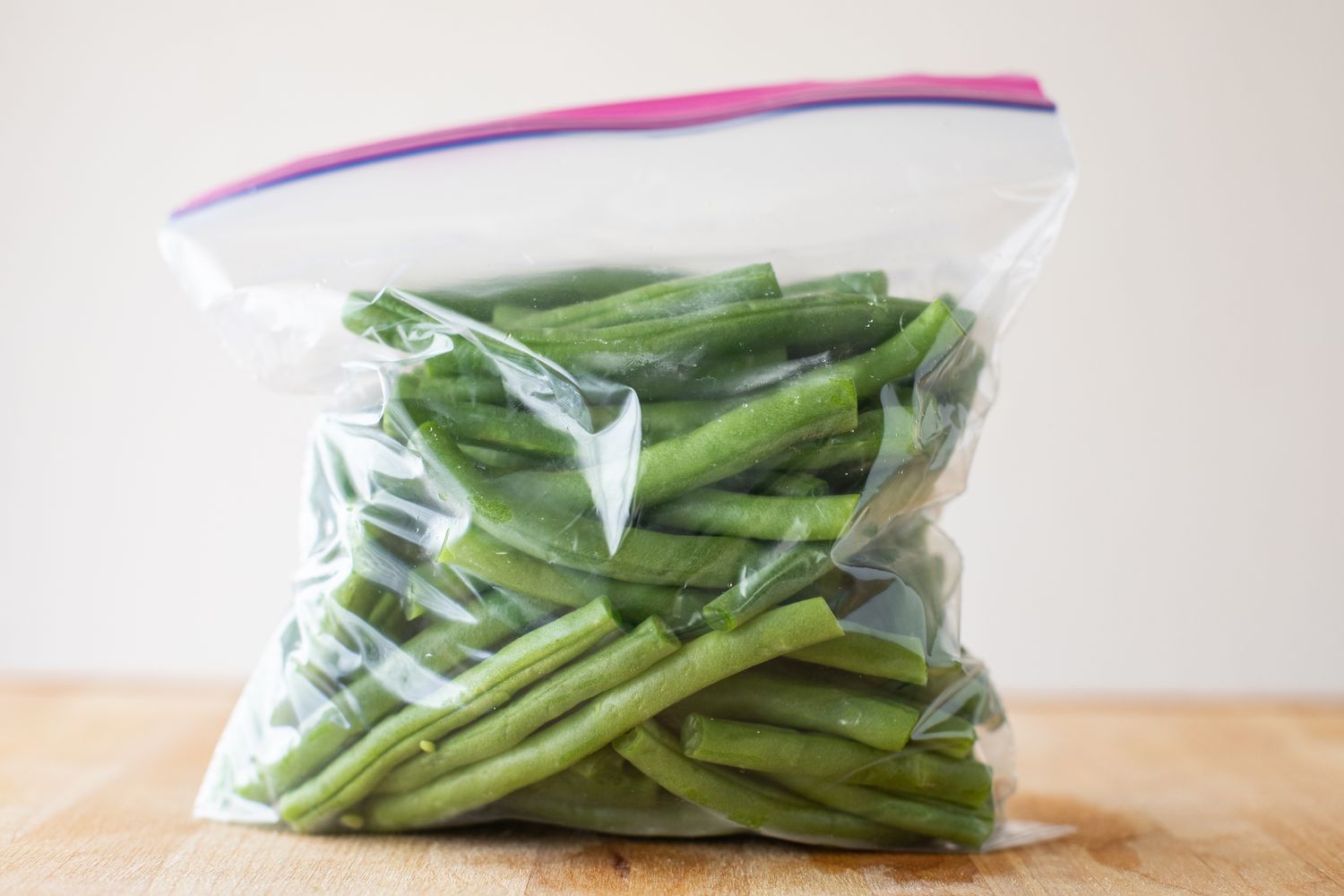

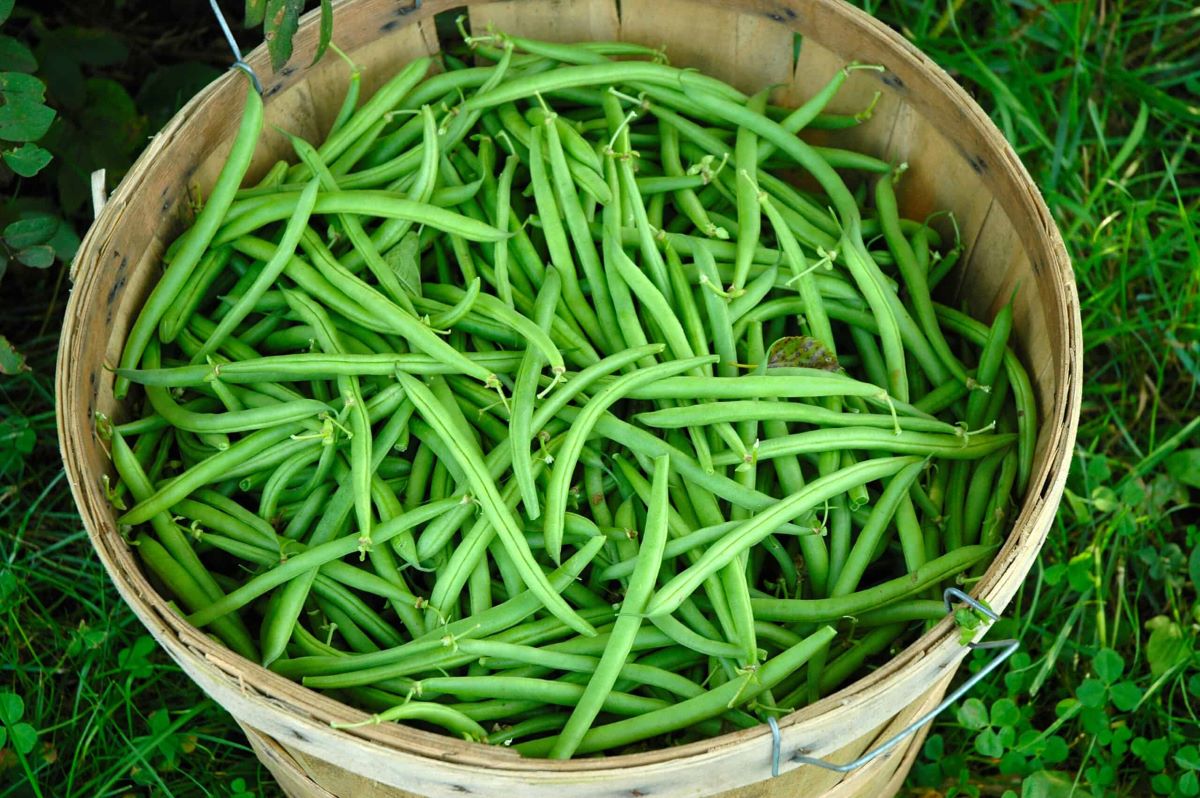
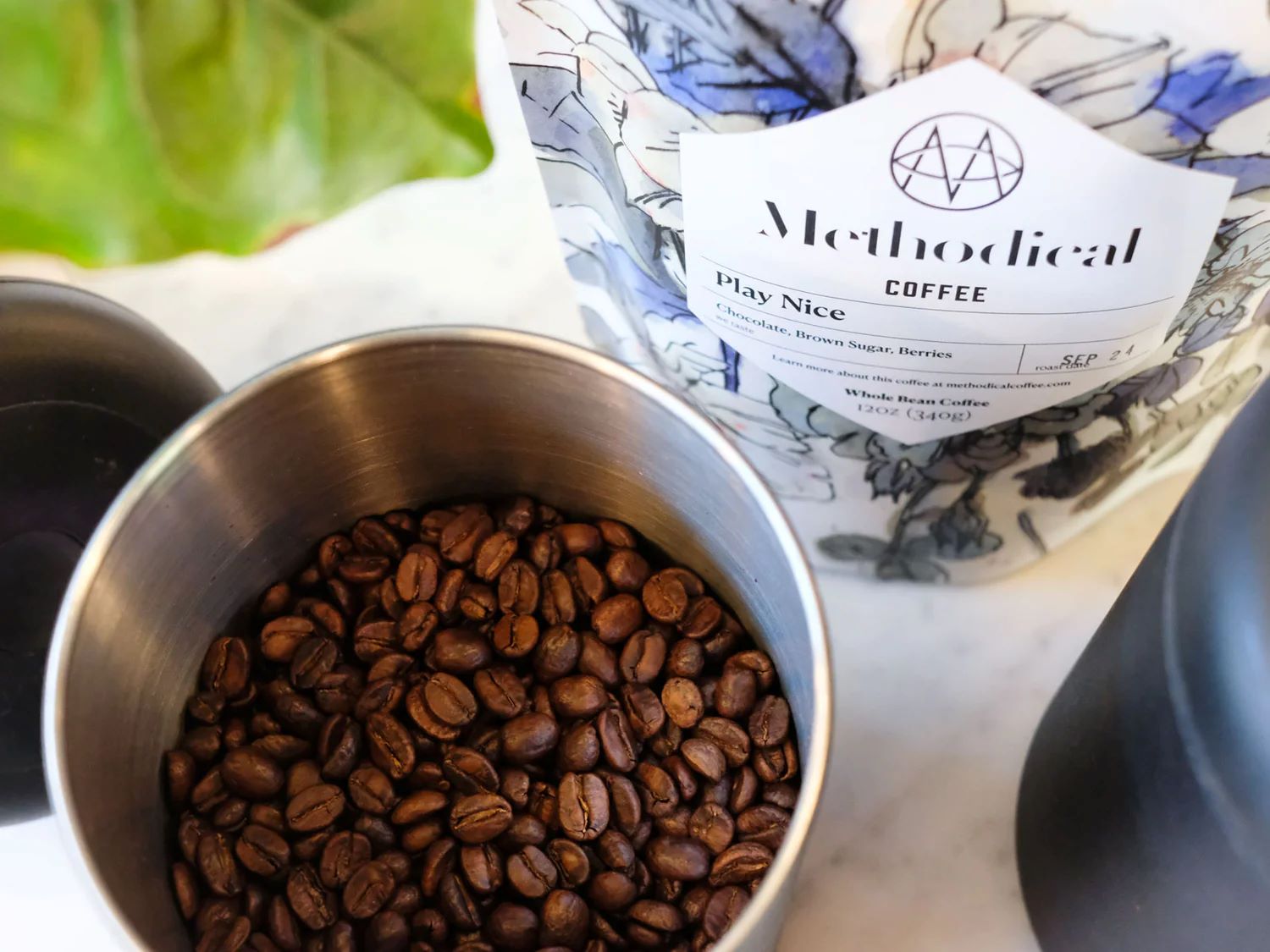
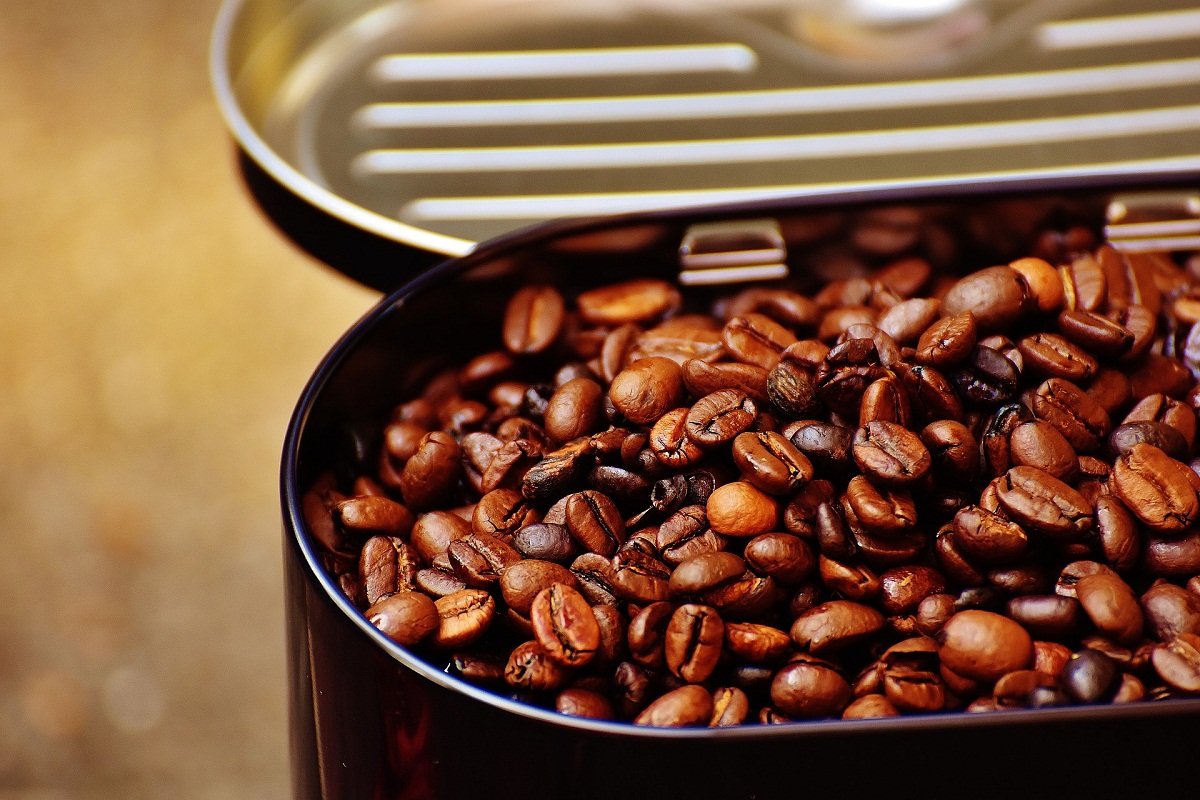

0 thoughts on “How To Store Fresh Roasted Coffee Beans”